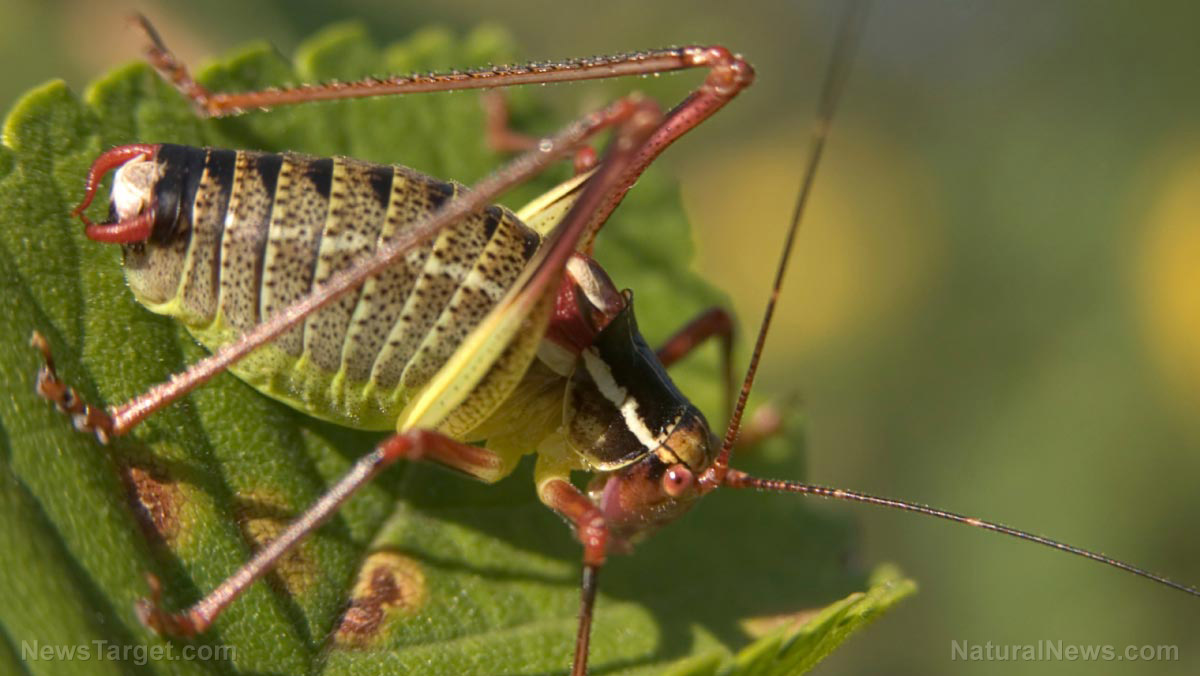
Farmers and ranchers lamented the damage caused by the grasshoppers in their wake. Cattle rancher Roger Nicholson of Fort Klamath in southern Oregon shared how grasshopper bands covered the ground like snow and ate 1,000 acres a day. "I can only describe grasshoppers in expletives. They are a scourge of the Earth. They just destroy the land … [and] the crops. They are just … bad, bad [predators]," he said.
John O'Keeffe, another cattle rancher, commented that grasshoppers besieged his eastern Oregon ranch a year prior. "They basically ate all the forage," he said. According to the rancher's estimate, the grasshoppers cost him $50,000 in lost forage – plus the cost of hay to feed cattle in the absence of forage. O'Keefe's ranch was recently treated with insecticide to avoid another attack by the grasshoppers.
Sixth-generation rancher Tylor Lorenz, who is based near Oregon's border with California, said: "They're kind of a neat bug, kind of like a pack. [But] when they go through a field, they will just completely wipe out everything that's there. The damage that they do when they come into crops is just absolutely horrific."
Entomologist and agricultural scientist Helmuth Rogg of the Oregon Department of Agriculture said: "The biggest biomass consumer in the country are not cattle … [or] bison: They are grasshoppers. They eat and east from the day they get born until the day they die. That's all they do." He added that agricultural losses due to grasshoppers are often reported to be in the hundreds of thousands of dollars.
Excess insect populations have ravaged different parts of the U.S.
Aside from consuming rangeland forage that serves as food for cattle and wild antelope, grasshoppers eat the leaves off of fruit trees. They also devour crops by positioning themselves in the dry areas around croplands, slowly eating their way in. Grasshoppers can fly for miles and travel in bands after consuming one area, repeating the cycle in another location.
Despite grasshoppers' prolific nature, they are actually native to the western portion of the U.S. Weather, predators and diseases have typically kept their populations in check for millions of years. However, grasshopper populations started ballooning in the spring of 2020 – thanks to warmer and drier winters that promoted grasshopper eggs to survive. The few rains that spurred grass growth, a common food for the young bugs, contributed to the population spike. (Related: PLAGUE: Brood X cicadas are now emerging in the Mid-Atlantic.)
The states of Oregon and Montana have been the hardest hit by the grasshopper swarms. Hazard maps assembled by the U.S. Department of Agriculture's Animal and Plant Health Inspection Service (APHIS) have shown that 13 other states have faced threats from the insects.
The APHIS also ran a program to control grasshoppers and Mormon crickets, with 17 states under it. It spent more than $5 million on efforts to suppress the insects in 2020.
While grasshoppers proliferated in the western U.S., gypsy moth caterpillars ravaged the northern parts of the country. Just like the grasshoppers, the insects have stripped trees clean of their leaves. They also threatened large areas of forest land due to their insatiable appetites. (Related: Gypsy moth caterpillars damage trees, threaten forests in northern US.)
Residents in a number of states told multiple news outlets of the damage caused by these caterpillars. Will Wilkins of Fulton County in New York told NEWS10: "I've got … all kinds of trees around me, [and] the infestation is just unbelievable. They have taken the leaves off everything." He added that the gypsy moth caterpillars also cleared out seven apple trees and about 16 blueberry bushes.
Meanwhile, Shannan Warwick of Schuyler County told Syracuse.com that the caterpillars attacked the oak, apple and pine trees on her five-acre property. She told the website that the insects' droppings falling down sounded like it was "raining in the backyard." Warwick was forced to move picnic tables in her backyard to avoid insect droppings hitting the furniture.
Environ.news has more articles about swarms of insects such as grasshoppers and gypsy moth caterpillars invading different parts of the U.S.
Sources include:
Please contact us for more information.























